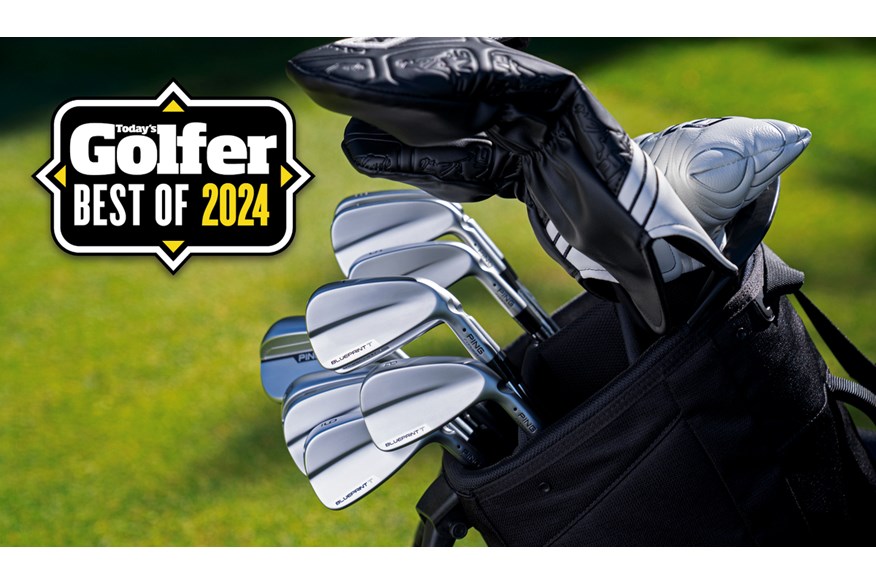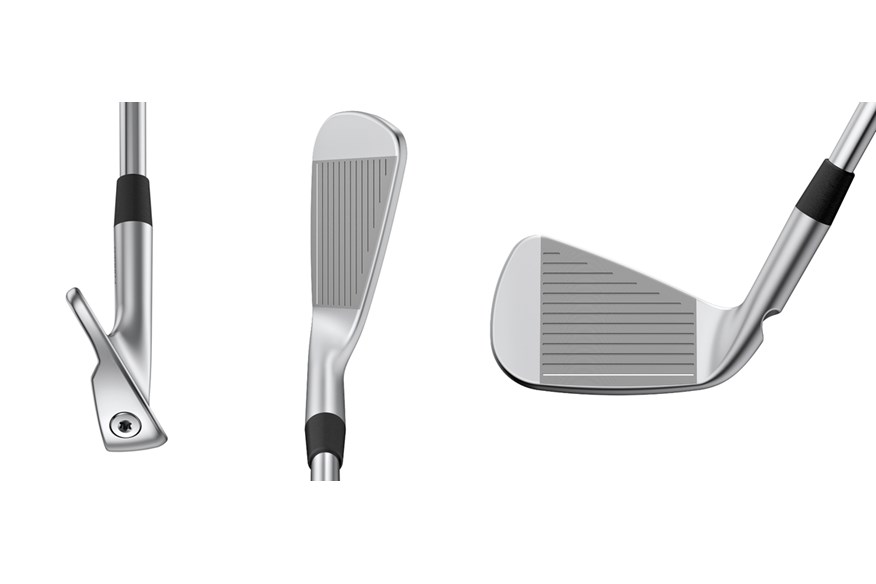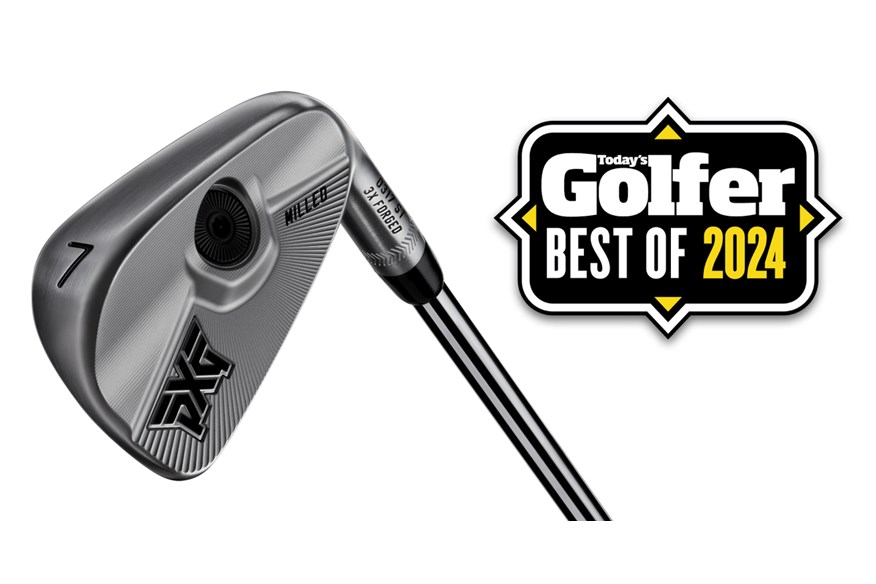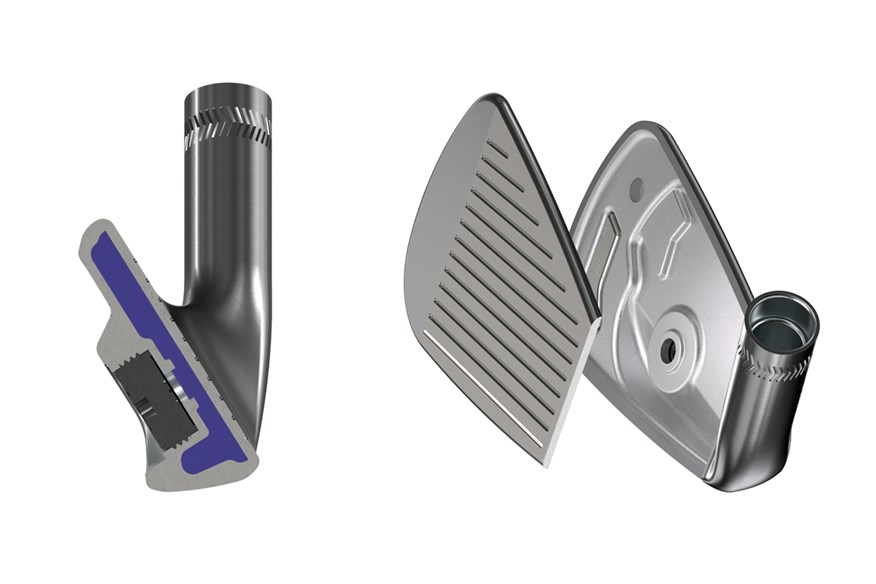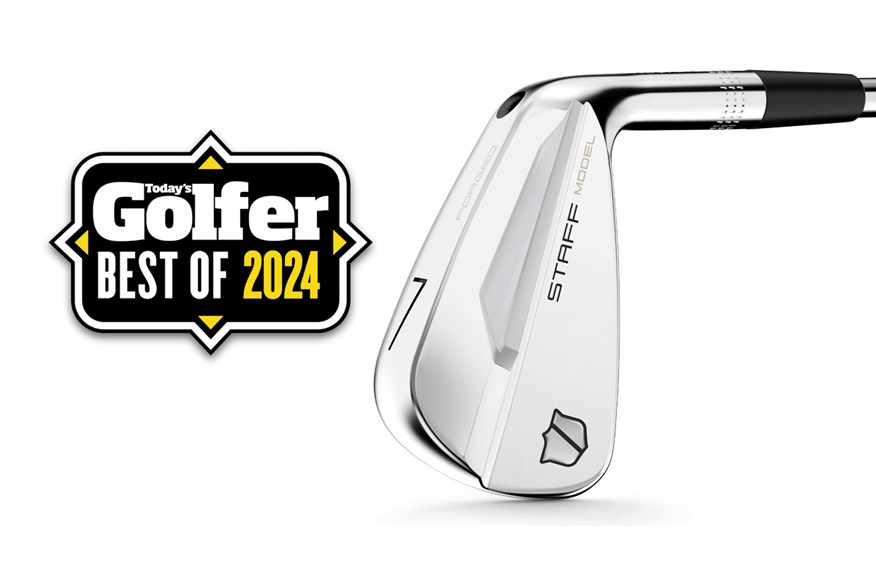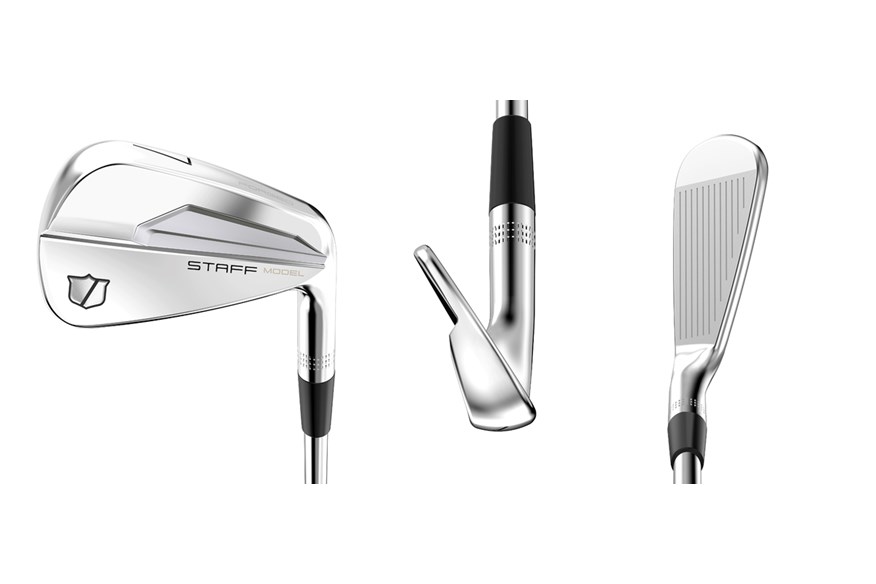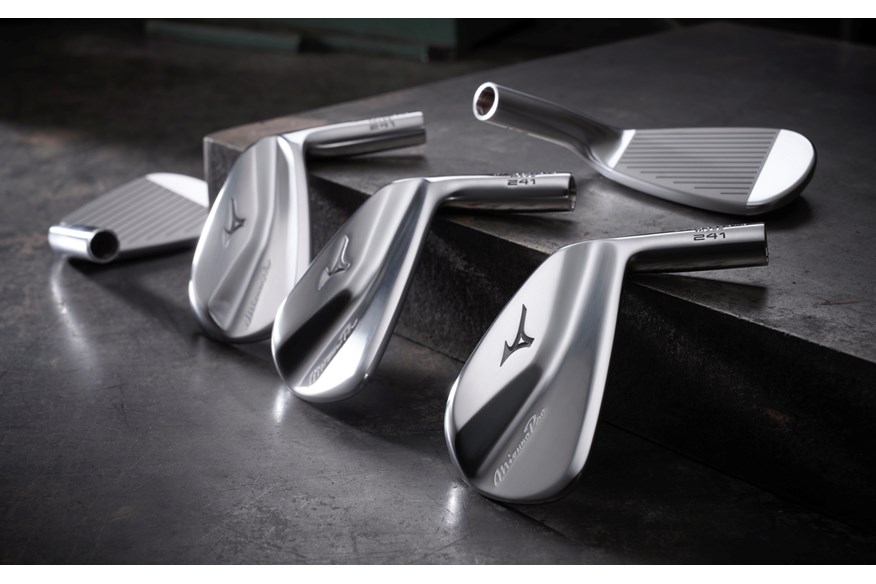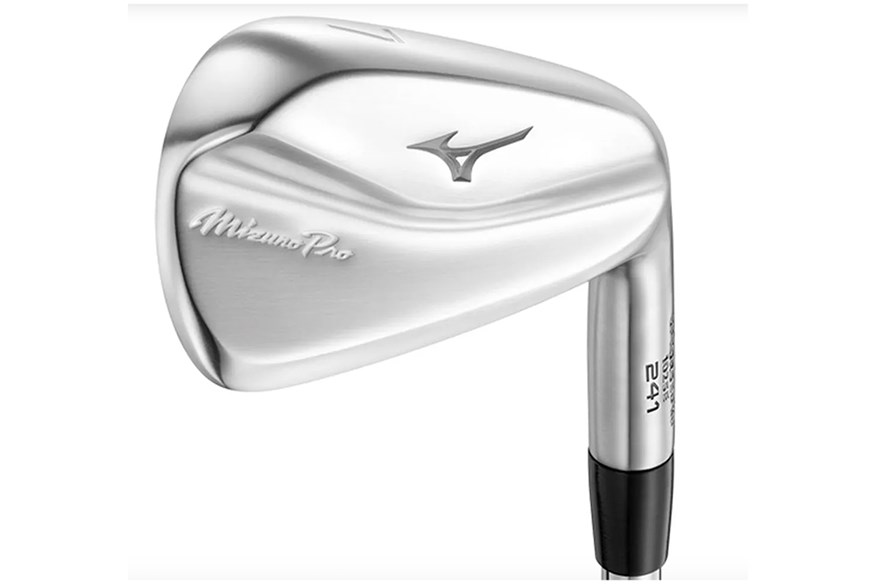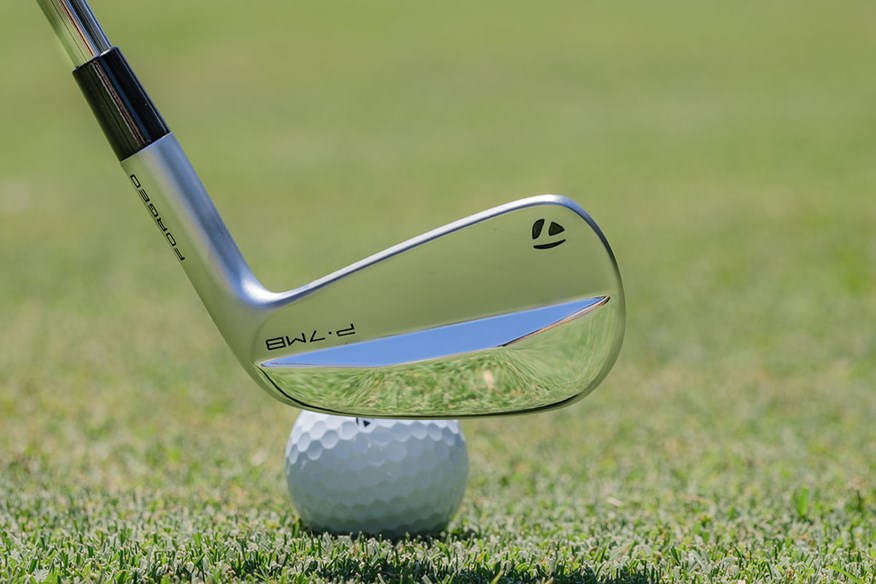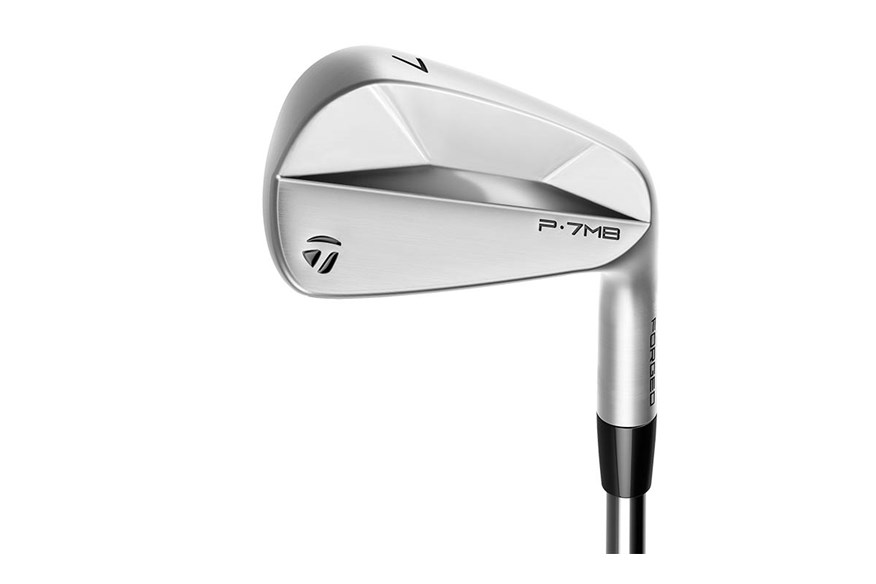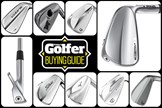Best Blade Golf Clubs: Our data-backed shortlist of stunners to seduce the purist ball strikers
Last updated:
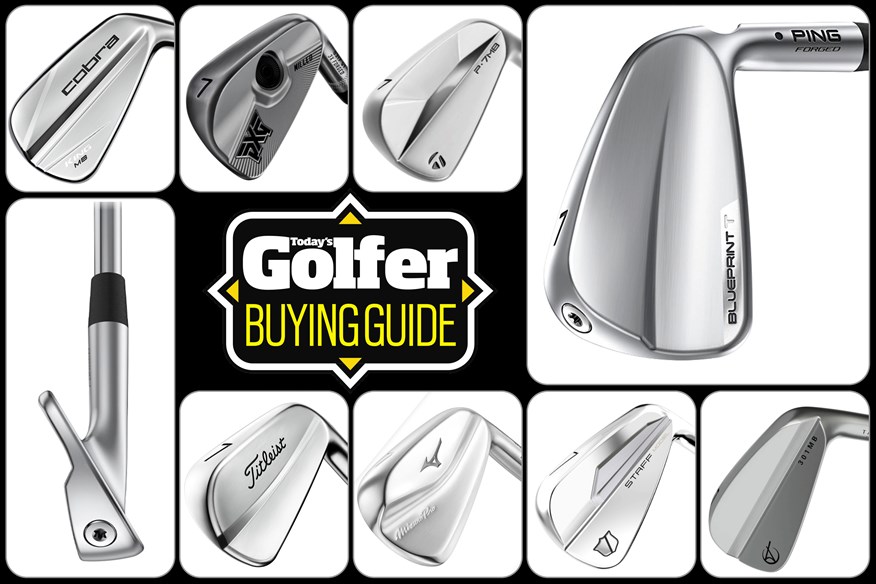
Today’s Golfer pitch the best blade irons head-to-head to pick out the most versatile, workable, and beautiful models in 2025.
Historically revered as the best golf irons for elite and high-level players, blade irons have started to fade a little in terms of popularity on tour with many of the top stars now opting for the added forgiveness engineered into the best players’ irons instead.
Blade irons are forged from a single piece of metal and have smaller club heads, with a thin top line and sole. This razor-sharp appearance starkly contrasts the wide-bodied, cavity-back design of high-handicap irons that aim to enhance forgiveness and launch ability. As well as being less forgiving, blades are also weaker lofted than other categories of iron (34° or even 35° for a 7-iron), and require high swing speeds and consistent ball-striking prowess to extract their potential.
Best At A Glance
Best overall blade irons: Ping Blueprint T blade irons | Buy Now
Best for shot-shaping: PXG 0317 ST blade irons | Buy Now
However, those who do possess this ability can take advantage of the unrivaled feel, control, and workability offered by blade irons. This set of characteristics allows the best ball strikers to more easily shape shots both ways, impart spin, and control distance, ultimately enabling them to get closer to more pins and shoot lower scores.
We tested all the leading blade models head-to-head on a launch monitor to see which blades are a cut above the rest in 2025. For those itching to see our test pro’s numbers, jump straight to the data table, or carry on scrolling for our expert-reviewed shortlist.
Best Golf Blade Irons 2025
The fastest and longest blade we’ve tested this year.
Just like the original Blueprint, the new T has an incredibly good head shape, it’s really inviting sat behind the ball, and I just wish I was good enough to deploy the model on the golf course. Forged irons and Ping have never really been easy bedfellows as the company insisted for decades that cast irons could feel just as good as forged models. It’s intriguing then that the company now has three different irons with forged components (Blueprint T, Blueprint S, and i525), which for me marks a significant move away from the brand's decades-old stance on the material best suited to iron production.
I love the way that Ping doesn’t make a big deal about their forging process, not in the way a company like Mizuno has to with their Pro 241. All in our test pro felt he struggled to feel a difference between the T and the Mizuno Pro 241, which has to say sometimes the myth around forged blade feel is built up to levels that don’t really exist. Where Mizuno might have forged iron heritage, Ping has tons of great iron know-how, and based on our data I’d have no hesitation in recommending the Blueprint T to anyone looking at new muscleback blades in 2024.
For our test pro, the model was the fastest and longest blade we’ve tested this year, but if I were buying a set myself my eyes would be drawn more to the model offering up the 3rd smallest carry distance drop-off, and shot area size, numbers that will contribute to lowering scores rather than getting carried away about feel and feedback.
Read our full Ping Blueprint T iron review.
Pros
- Very good-looking iron.
- Minimal offset will suit good players.
- More forgiving than the original Blueprint.
Cons
- Some may be put off by the toe screw and notched hosel.
| Availability | 3-PW |
| Stock shafts | True Temper Dynamic Gold 120 (S300, X100) |
| 7-iron loft | 33° |
Perhaps the best muscleback iron on the market.
PXG knows a thing or two about making great irons. As is their calling card throughout their iron family the 317s have delicious straight-line head shapes, throughout the set and a really premium satin finish. Our pro loved the feel and feedback and it’s no exaggeration when I say he hit them incredibly well.
Speed and distance should never be factors when buying in the blade category but surely the 0317 has to score points for producing above-test average levels of ball speed and ranking tied 2nd longest for carry distance. The model also registered a shot area 26% smaller than our test average. Now don’t get me wrong I’m not saying this is a forgiving blade, it isn’t, but the data does support the reputation that PXG has built for making slightly straighter irons than most.
If I were spending my own money though the real deal sealer is PXG’s very clever central weighting system. Golfers can go lighter or heavier (which can boost ball speed, distance, and consistency), longer or shorter without moving the center of gravity location and thus altering feel. To me, it’s a genius idea, and brilliant if you want to optimize a set for your own game in 2025.
Read our full PXG 0317 ST iron review.
Pros
- A beautiful traditional blade profile.
- Can be weighted up or down without changing the CG location.
- Even decent ball strikers will appreciate the cavity-back long irons.
Cons
- Unforgiving on off-center hits, so they're for high-skill ball strikers only.
| Availability | 3-PW |
| Stock shafts | True Temper Elevate 95 (s), KBS Tour Lite (s), Mitsubishi MMT (g), Project X Cypher (g), UST Recoil Dart (g) |
| 7-iron loft | 33° |
One of the best-performing blade irons in 2024.
Just like its predecessor the Staff Model is a great-looking blade, it comes with a highly polished chrome finish that’s as traditional as iron finishes get. Compared to the PXG 0317 ST the Wilson does have a more intimidating look at address, which is down to the topline thickness and sole widths being so wafer thin, but bear in mind Wilson’s staff players have fed directly into this design. Obviously, there’s an audience out there who like and favor the look, just beware that even if you’re looking to combo blade short irons with Wilson’s brilliant new Staff Model CB (Players’ Iron) mid and long irons, I would not describe the model in any way as being confidence-inspiring.
From a standard 34° 7-iron loft in the blade category the Staff Model produced a fraction more ball speed, more launch and shot height than our test averages, it also tied 2nd for carry distance. If your game happens to be good enough to consider employing a set of blades this year the Staff Model is one of my three best-performing blades in 2024.
Read our full Wilson Staff Model Blade iron review.
Pros
- Feel and impact are sensational.
- For an iron of this quality, the cost is very reasonable.
- Head shapes and profiles don't come any more traditional.
Cons
- These are amongst the least forgiving irons on the market.
| Availability | 4-PW (Custom Order 2 and 3 iron) |
| Stock shaft | True Temper Dynamic Gold Mid 115 |
| 7-iron loft | 34° |
Well worth considering if you're shopping on a budget for blades.
TG Top Gear 2024: Best of the Rest
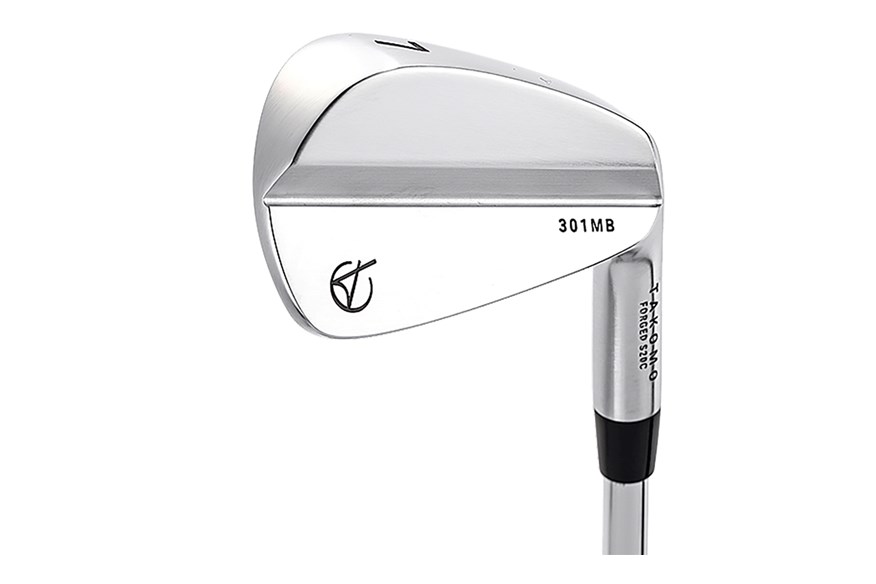

Like its siblings, the 301 MB is a seriously nice iron package. Sat in a golf bag very few people would think nothing other than this is a set of premium Japanese irons, yet at £557 the model costs less than half that of most of the models we tested.
As we found last year this isn’t the most powerful muscleback blade on the market, but it did again post very impressive accuracy numbers (2nd best for carry distance drop-off and shot area). That doesn’t mean the model is forgiving, it just means our pro hit them well. If you’re shopping for blades on a budget in 2025, this would be the model I’d search for online.
Pros
- Fantastic value for money.
- Wonderful looks.
- Very accurate.
Cons
- Limited custom fitting options.
| Availability | 4-PW |
| Stock shaft | KBS Tour |
| 7-iron loft | 34° |
A stunning blade for those wanting a lower-spinning option.
There will be Mizuno fans and loyalists out there that swear the 241 is the best feeling blade on the market, our test pro though found it very difficult to definitively say he felt any difference between this model and the majority of the other 11 muscleback blades he hit. That’s not to knock Mizuno but just to highlight the hype that surrounds feel out there in the marketplace.
It's worth pointing out that the Pro 241 created the least amount of backspin within our 2024 muscleback blade test, while other metrics were pretty much bang on test averages across the board. To me that would highlight the need to get properly fit for, and choose shafts that aren’t going to be lower spinning which ultimately would make the 241 harder to stop on slick hard green surfaces, especially as the whole reason for turning to a model of this ilk is ultimate precision and control.
Read our full Mizuno Pro 241 irons review.
Pros
- Expect beautifully shaped heads.
- Guaranteed great feel and feedback.
- Lots of shaft options at zero upcharge.
Cons
- All the Mizuno Pro irons are seriously costly options in 2024.
| Availability | 3-PW |
| Stock shaft | KBS Tour |
| 7-iron loft | 34° |
A tour-proven muscleback for the very best ball strikers.
Buying a set of musclebacks doesn’t usually come down to data, but our results from 2023 have the traditional 7-iron loft carrying shots five yards shorter than our longest blade on test, but also hitting shots into the smallest shot area. The P7MBs didn't quite produce the same forgiveness readings this time around which just goes to show how results can be reversed from one test to the next.
Read our full TaylorMade P7MB irons review.
Pros
- Great workability.
- High spinning with a steep descent angle.
- Beautiful aesthetics.
Cons
- Difficult to find the middle of the face
| Availability | 3-PW |
| Stock shaft | KBS Tour |
| 7-iron loft | 34° |
Best Golf Blade Irons 2025: The Data
Below is the data from our independent testing of the best blade irons available in 2025. You can read about all the other models that didn’t make our shortlist above in our golf club review pages or category-specific irons pages.
Test Pro data:
| Iron | 7-Iron Loft | Ball Speed | Launch Angle | Backspin | Peak Height | Descent Angle | Carry Distance | Carry Distance Drop Off | Shot Area |
| Ping Blueprint T | 33° | 120.7 MPH (1) | 16.6° | 5630 RPM | 30 YDS | 44.1° | 178 YDS (1) | 8 YDS (T3) | 98.4 SQ YDS (3) |
| PXG 0317 ST | 33° | 118.9 MPH | 15.4° | 5619 RPM | 27 YDS | 42° | 174 YDS (T2) | 9 YDS | 184.5 SQ YDS |
| Wilson Staff Model Blade | 34° | 118.7 MPH | 16.9° | 5661 RPM | 30 YDS | 43.9° | 174 YDS (T2) | 14 YDS | 312.2 SQ YDS |
| Sub 70 639 MB | 32° | 119.3 MPH (3) | 14.8° | 5844 RPM | 26 YDS | 41.6° | 174 YDS (T2) | 9 YDS | 235.8 SQ YDS |
| Cobra King MB | 34° | 118.9 MPH | 17.1° | 6225 RPM | 31 YDS | 45° | 172 YDS | 8 YDS (T3) | 224 SQ YDS |
| Mizuno Pro 241 | 34° | 117.3 MPH | 17.6° | 5547 RPM | 30 YDS | 44.3° | 171 YDS | 11 YDS | 218.9 SQ YDS |
| Vega VMB | 31° | 119.5 MPH (2) | 15.3° | 6177 RPM | 28 YDS | 43.4° | 171 YDS | 5 YDS (1) | 50.5 SQ YDS (1) |
| TaylorMade P7MB | 34° | 118.5 MPH | 16.2° | 6490 RPM | 29 YDS | 44.1° | 170 YDS | 12 YDS | 235.2 SQ YDS |
| Callaway Apex 24 MB | 34° | 115.9 MPH | 17° | 6029 RPM | 29 YDS | 43.8° | 167 YDS | 18 YDS | 433.8 SQ YDS |
| Srixon Z-Forged | 33° | 116.7 MPH | 16.5° | 6123 RPM | 28 YDS | 43.6° | 167 YDS | 21 YDS | 588 SQ YDS |
| Titleist 620 MB | 35° | 115.6 MPH | 17.5° | 6362 RPM | 29 YDS | 44.7° | 165 YDS | 13 YDS | 318.5 SQ YDS |
| Takomo 301 MB | 34° | 115.9 MPH | 16.7° | 6637 RPM | 29 YDS | 44.7° | 163 YDS | 7 YDS (2) | 90.3 SQ YDS (2) |
| Average | 118 MPH | 16.5° | 6028.7 RPM | 28.8 YDS | 43.8° | 170.5 YDS | 11.25 YDS | 249.2 SQ YDS |
How we tested the best blade irons
We asked the leading brands to send us their 2024 blade irons in our test Pro Neil Wain’s specs.
We created an indoor test lab at Keele Golf Centre to ensure a controlled environment, which meant we could use premium Titleist Pro V1x golf balls and a Foresight GC Quad launch monitor to create the most reliable data possible. We rejected major misses but recorded how shots launched, span, peaked out, and how far they flew in which direction.
See more about how TG tests golf clubs and other equipment.
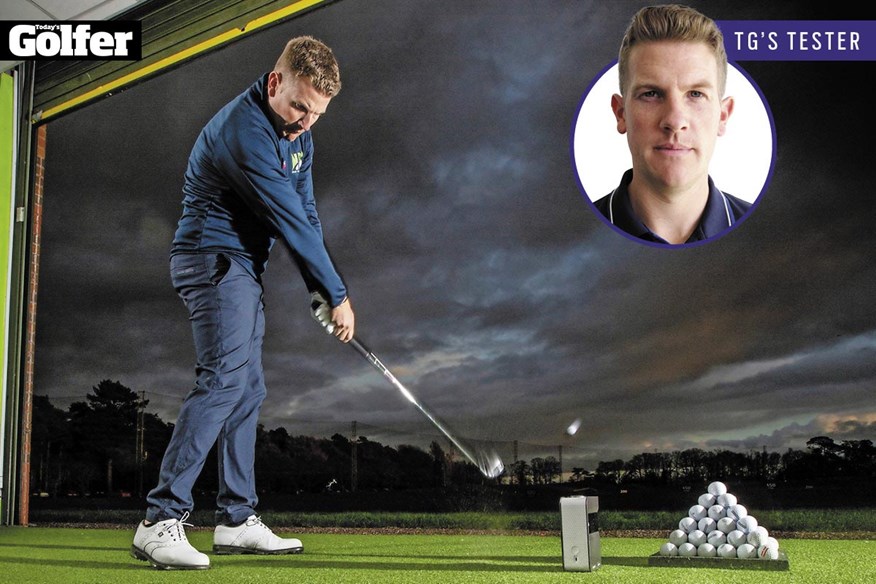
Best Golf Blade Irons 2025: Buying Guide
For our most comprehensive buying guide for those unsure whether blade irons are for them, jump over to our best golf irons page for a more thorough breakdown of what each category has to offer. But if you’re already seduced by the sexy muscleback, here are the key things worth considering.
Feel
The feel of a golf shot is integral, allowing you to learn from the interaction experienced between the ball and the club at impact. Feel is determined by the vibrations traveling up the shaft of the club, as well as the sound of the impact. Every blade will have its own unique ‘feel’, and it’s therefore imperative to make sure you select a model that encourages this feedback to best control ball flights and ultimately help you to shoot lower scores.
Workability
The ability to draw and fade a ball into awkward pins is a key skill for better players, and blade irons are designed to enhance this shot-shaping ability. Consider your natural ball flight and which shot shape you struggle with most before heading to the range with a few different options to see which model provides you with the workability you desire.
Forgiveness
As previously mentioned, blade irons typically offer lower levels of forgiveness in comparison to other categories of iron. If forgiveness is one of your top priorities from a new set of irons then we strongly suggest checking out our best mid-handicap or high-handicap irons page to find the most forgiving models offered by the leading brands. That said, forgiveness in some of the latest blade releases are improving, as we’ve found with the Ping Blueprint T and TaylorMade P7MBs in recent tests.
Looks
Blade irons are arguably the best-looking clubs in golf, and while you should guard against being seduced by looks alone, looking down at address and liking what you see is pretty important from a confidence perspective.
Custom fitting
Often overlooked, but dialing in your optimal set-up through a custom fitting session will likely be of more benefit than the slight performance edge you hope to achieve by selecting one set of blades over another. If you’re not sure where to start, we suggest nipping down to your club Pro, or nearest golf retailer to explore the shaft, flex, lie angle, and a whole host of other variables that will help you extract the most value from your chosen model.
Budget
As with most things in the golf world, prices for irons can vary considerably. Value for money is subjective and therefore you should spend however much you feel comfortable with, be it a premium set of blades, or one with a more competitive price point.
If you’re ready to upgrade in 2025 but can’t justify the dizzying price tags of the games’s powerhouse brands, check out our pick of the best blade golf clubs from 2023. Many of these recently replaced or slightly older models are now available at reduced prices and still deliver a high-performance package.

Best Golf Blade Irons 2025: FAQs
Are blade golf clubs better?
As for all categories of golf clubs, blades are only “better” in the right pair of hands. You need to bear in mind that blades have weaker lofts and don’t feature the distance-boosting technology present in other types of iron and are typically the least forgiving. For high-speed, consistent ball strikers, however, they can offer enhanced levels of workability, feel, and control. They also look pretty epic!
Why do pros use blade golf clubs?
Pros that opt for blades do so for the level of control, precision, and consistency they can offer. Blades typically have higher spin rates than other irons, making ball flights easier to control flights and greens easier to hold. Blades also tend to be more “workable” than other irons, which means pros can more easily create different shot shapes and ball flights than they would with a more forgiving iron. The world’s best golfers rarely struggle for distance, so prefer a less technology-packed design that does exactly what they want it to.
What handicap golfer should use blades?
There are no hard-and-fast rules, but blades are typically suited to very low handicappers and professionals. That’s not to say that an average or even a high handicap golfer should never play blades; every golfer is different and some mid-handicappers may excel at ball-striking with their irons and lack in other areas, which means they could use blades effectively.
Which blade irons are the most forgiving?
Golfers wanting forgiveness from their irons will generally be best looking at any category other than blades, but those wanting a blade with as much forgiveness as possible will be encouraged to know that the best modern blades are more forgiving than the classic blades of yesteryear.
Our data showed the Ping Blueprint T, PXG 0317 ST, and Wilson Staff Model Blade as the best at protecting ball speed and carry distance on mis-hits, making them the most forgiving blade irons available.
